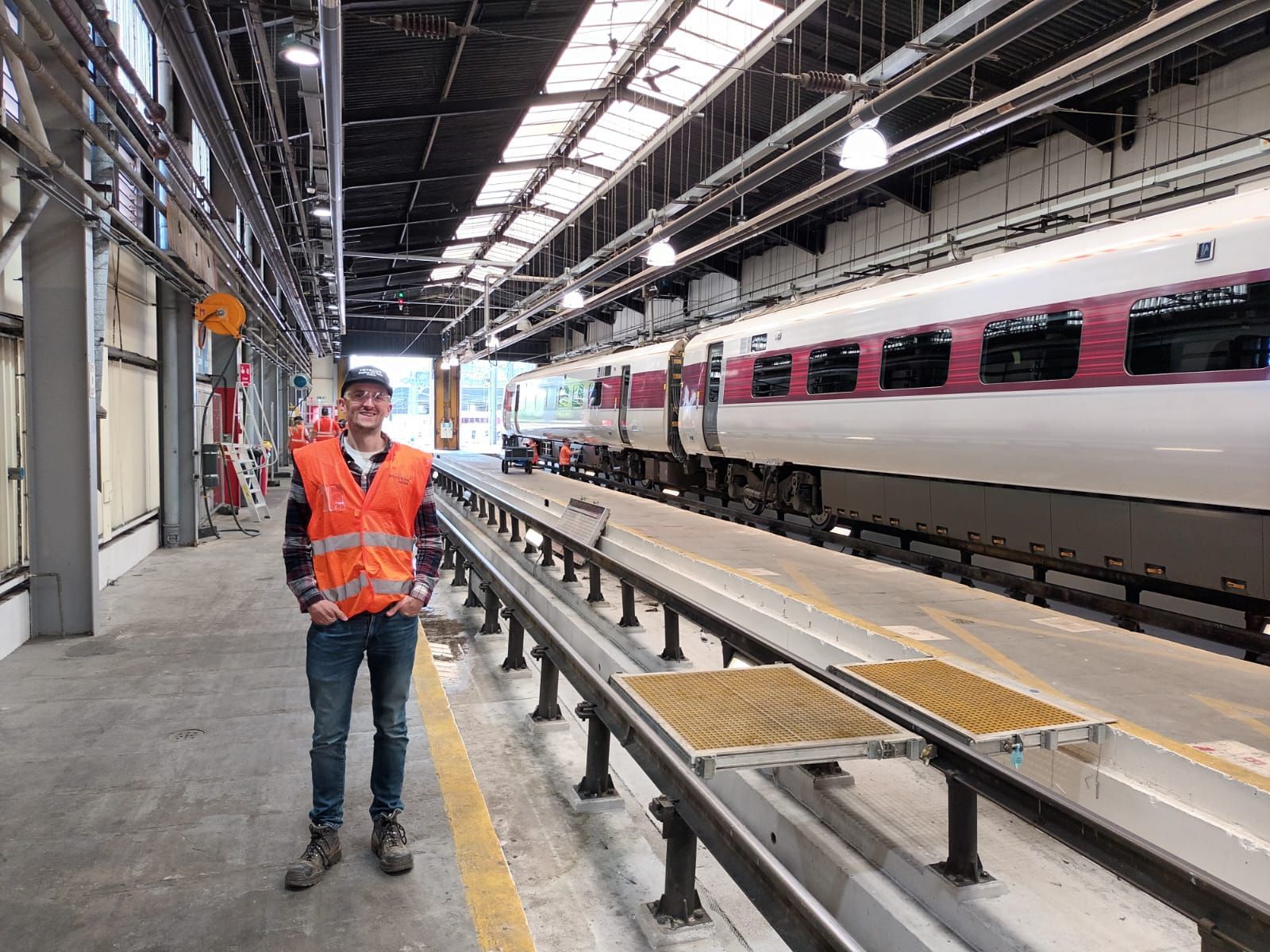Published in Rail Professional: Compliance in the Rail Sector

Recently, we were thrilled to team up with Rail Professional to share our insights and expertise on this trade effluent compliance in the Rail Industry, featuring our very own, Michael Underwood!
Michael is a Senior Hydrologist at Envireau Water, a specialist water management consultancy. As a Chartered Water and Environmental Manager (C.WEM), Michael has 10 years’ experience in flood risk management and drainage, surface water hydrology, drainage design and river management. He also serves on the committee of the Chartered Institute of Environmental Management (CIWEM) East Midlands Branch.
Trade effluent is an increasing challenge in the rail industry, yet it remains widely misunderstood and often underestimated. Envireau Water's Senior Hydrologist, Michael Underwood, explores why it is important to take a proactive approach to compliance and the four key steps to consider.
A crucial aspect of environmental compliance, trade effluent encompasses any liquid waste produced during the course of a trade or industry carried on at trade premises, including train maintenance and cleaning activities. However, managing these discharges is anything but simple. Rail operators must navigate a complex web of regulations, aging infrastructure, and financial constraints.
Beyond environmental concerns, poor trade effluent management poses a significant business risk. Securing the right consents in the correct locations is essential for effective wastewater management and environmental protection. In the UK, businesses must comply with strict regulations governing effluent discharge into sewers and watercourses, with the failure to do so resulting in severe environmental damage, legal repercussions, and substantial financial penalties.
Challenges facing fail operators
Compliance isn’t just a corporate social responsibility; it’s a legal necessity. Rail operators found discharging effluent without the appropriate consents or failing to meet specified quality standards risk substantial fines, legal action, and not to mention potentially irreparable reputational damage. Stricter regulations, combined with growing public and political scrutiny, have made compliance more challenging in recent years.
At the heart of the issue is a fundamental reality: water is essential to rail operations. Whether for train washing, cooling systems, or track maintenance, water use is non-negotiable. The question isn’t whether a rail operator needs a consent, but which type, under what conditions, and how to ensure long-term compliance without disrupting operations.
Legacy sites: A hidden challenge
Legacy sites often pose some of the greatest challenges in achieving trade effluent compliance. The combination of historic infrastructure and the lack of appropriate treatment systems means sites encounter significant challenges in adhering to trade effluent regulations. Operators, through no fault of their own, frequently inherit sites with little to no knowledge of their drainage systems, service plans, discharge points, or compliance history—turning regulatory obligations into a logistical nightmare.
Many rail companies are already seeing compliance breaches impact funding, with financial penalties and operational restrictions creating ripple effects across the business. For one rail operator, failing to meet compliance targets resulted in severe financial consequences. With a substantial portion of their funding tied to environmental compliance, even minor breaches triggered investment restrictions, limiting operational flexibility.
To overcome this challenge, there are several steps to consider.
Identifying on-site activities
Developing a clear understanding of a site’s practices, processes, sources and discharge of trade effluent are essential for rail operators, environmental managers, and facility managers. Identifying on-site activities that could contaminate drainage systems and implementing appropriate management procedures is crucial in ensuring all discharges comply with the relevant conditions of the consent, as well as helping determine the necessary actions to bring a site into full compliance.
A holistic, well-structured approach is key to providing confidence and clarity at every stage of the compliance journey, helping to mitigate risks, streamline operations, and maintain environmental responsibility.
Environmental monitoring: Is it enough?
Many operators rely on environmental monitoring for trade effluent compliance. While crucial, monitoring is also costly, and operators must ensure their monitoring scheme is appropriate and effective. However, although monitoring helps detect pollution, it is only a reactive measure.
Instead of viewing compliance as a formality, rail operators must adopt a preventative approach by identifying risks early and implementing robust solutions. This means investing in site assessments, identifying potential contaminants at the source, and implementing solutions before breaches occur. Whether through improved refuelling practices, enhanced containment measures, or sustainable treatment technologies, rail operators must think beyond compliance and towards long-term environmental resilience.
The importance of pro-active management
Ensuring trade effluent compliance is an ongoing challenge that will only intensify over time. It must remain a top priority for every rail operator.
The only viable path forward for the rail industry is one that embraces proactive management, integrates environmental responsibility into everyday operations, and acknowledges that trade effluent compliance isn’t just a legal obligation but a fundamental part of sustainable business.
For the rail operator referenced earlier, a holistic approach was adopted to help them achieve compliance and operational resilience. Key measures included reviewing and properly sizing new oil-water separators to meet hydrocarbon discharge regulations, improving refuelling practices, and enhancing containment systems. As a result, it is now equipped to manage its sites independently, supported by a proactive and well-informed compliance framework that ensures long-term regulatory adherence and operational success.
The way forward
To stay ahead of evolving regulations, rail operators must rethink outdated approaches, invest in expert guidance, and prioritise long-term solutions over temporary fixes. Ignoring these challenges doesn’t just risk compliance failures—it threatens operational stability in an industry where efficiency and environmental responsibility go hand-in-hand.
Need our support?
With over 25 years of experience, our team of water scientists and engineers are experts in water management. We take a pragmatic approach to tackling even the most complex regulatory challenges across our four sectors of expertise.
We have successfully supported several rail operators in managing their trade effluent consents, and we're ready to support your site, too.
Contact Michael at
michaelunderwood@envireauwater.co.uk or call us on 01332 871 882 to discuss your project.







